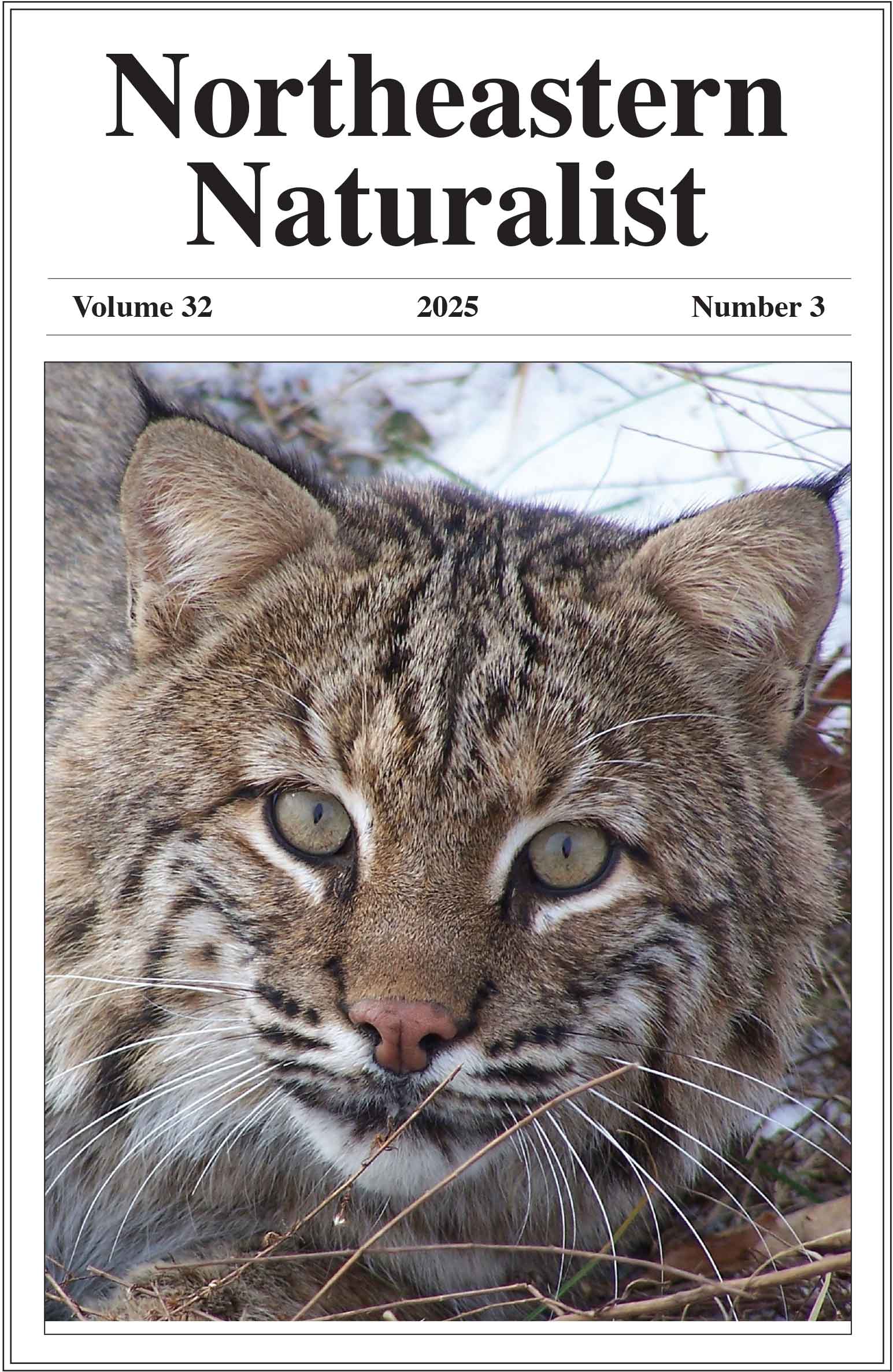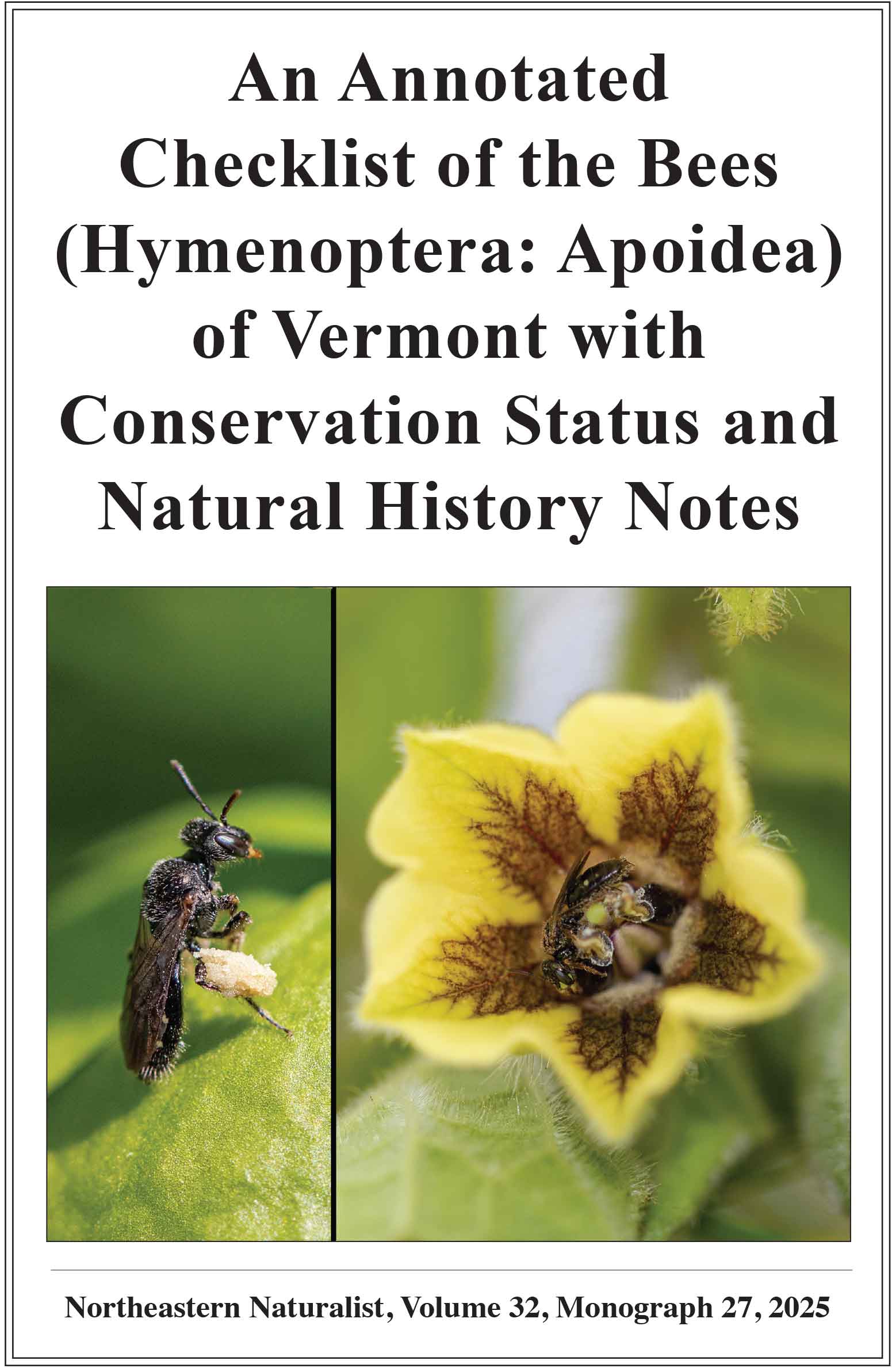Caught Red Handed: Cannibalism in Jumping Mice?
Brittany L. Slabach1,2,*, Thomas Bates1, Maggie Denison2, Ellie Jackson2, John G.T. Anderson2, and Bik Wheeler3
1Department of Biology, Trinity University, San Antonio, TX 78212. 2College of the Atlantic, Bar Harbor, ME 04069. 3The National Park Service, Acadia National Park, Bar Harbor, ME 04609. *Corresponding authors.
Northeastern Naturalist, Volume 32, Issue 3 (2025): N51–N55
First published early online: 8 September 2025
Abstract
Zapus hudsonius (Meadow Jumping Mouse) is the most widely distributed species of the family Zapodidae in North America. While studies have shed light on different aspects of their ecology, jumping mice are cryptic, making field observations of behavior difficult. We report on 2 related field observations. First, we captured 2 Meadow Jumping Mice in the same trap; 1 was dead and in a state of decay, with bite marks present. Two days later, we captured a male jumping mouse with dried blood and muscle matter in his pelage. Based on evidence of the capture events and the state of the individuals, we hypothesize this is an observation of cannibalism in jumping mice. Our observations raise questions regarding foraging behavior and interactions between individuals.
![]() Download Full-text pdf (Accessible only to subscribers. To subscribe click here.)
Download Full-text pdf (Accessible only to subscribers. To subscribe click here.)
Access Journal Content
Open access browsing of table of contents and abstract pages. Full text pdfs available for download for subscribers.
Issue-in-Progress: Vol. 32(4) ... early view
Check out NENA's latest monograph and Special Issue:













 The Northeastern Naturalist is a peer-reviewed journal that covers all aspects of natural history within northeastern North America. We welcome research articles, summary review papers, and observational notes.
The Northeastern Naturalist is a peer-reviewed journal that covers all aspects of natural history within northeastern North America. We welcome research articles, summary review papers, and observational notes.